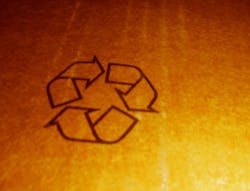Centrisys Corporation and CNP Technology Water and Biosolids Corporation have invited attendees of the Water Environment Federation (WEF) Residuals and Biosolids 2016 conference, slated for April 3 to 6, 2016 in Milwaukee, to tour the nearby Kenosha Wastewater Facility in Kenosha, Wis. The tours offer the opportunity to see how a variety of technologies work together to save the plant money and move it closer to its goal of energy independence.
Announced in 2015, the Kenosha Water Utility broke new ground with the wastewater treatment plant’s Energy Optimized Resource Recovery Project. The sizeable project includes a range of initiatives and technologies to achieve plant efficiencies and an aggressive energy-savings goal. The plant tours coincide with a discussion of the project at the WEF conference. Kenosha Wastewater Treatment Plant Manager Curt Czarnecki will lead the discussion during a conference workshop on Sunday, April 3, 2016, and a technical session on Monday, April 4, 2016. More information is available at the WEF Residuals and Biosolids 2016 website.
Centrisys and CNP officials will conduct personal tours of the Kenosha plant to give WEF attendees a firsthand look at technologies in operation, including North America’s first use of CNP’s PONDUS Thermo-Chemical Hydrolysis Process. The process generates more reusable methane from waste-activated sludge than would otherwise be possible.
To schedule a tour during the WEF conference, contact Gerhard Forstner at [email protected], or (262) 705-9973.
The Kenosha plant’s project represents a combined effort that brings together CNP, Centrisys Corporation, Kenosha Water Utility and wastewater treatment plant officials. In addition to the Thermo-Chemical Hydrolysis Process, the plant adopted a number of others advanced technologies, including:
- Centrisys THK 200 Thickening Centrifuges – The technology yields a composition of 7% solids, allowing for fewer digesters and improved heat and energy cost savings.
- Biogas Conditioning System – It reduces maintenance and increases longevity of the Combined Heat and Power (CHP) co-generation units.
- CHP Units – Powered entirely by the digester gas, they will power all equipment in the process, and provide supplemental power to the rest of the plant. They will also supply heat for the dryer and PONDUS system, anaerobic digesters and central plant-heating loop.
- Centrisys CS21-4HC Dewatering Centrifuge – It removes liquid from the digested sludge, taking the biosolids to a 28 to 30% solid concentration in order to reduce the volume of biosolids prior to being introduced into the belt dryer, saving on volume and energy costs.
- Low Temperature Belt Dryer – It takes biosolids from the dewatering centrifuge and dries it to 90% solid concentration, which reduces the biosolids in volume by a third. The Class A Biosolid can also be used for fertilizer or fuel applications, mitigating disposal costs for landfill.
Source: Centrisys, CNP


